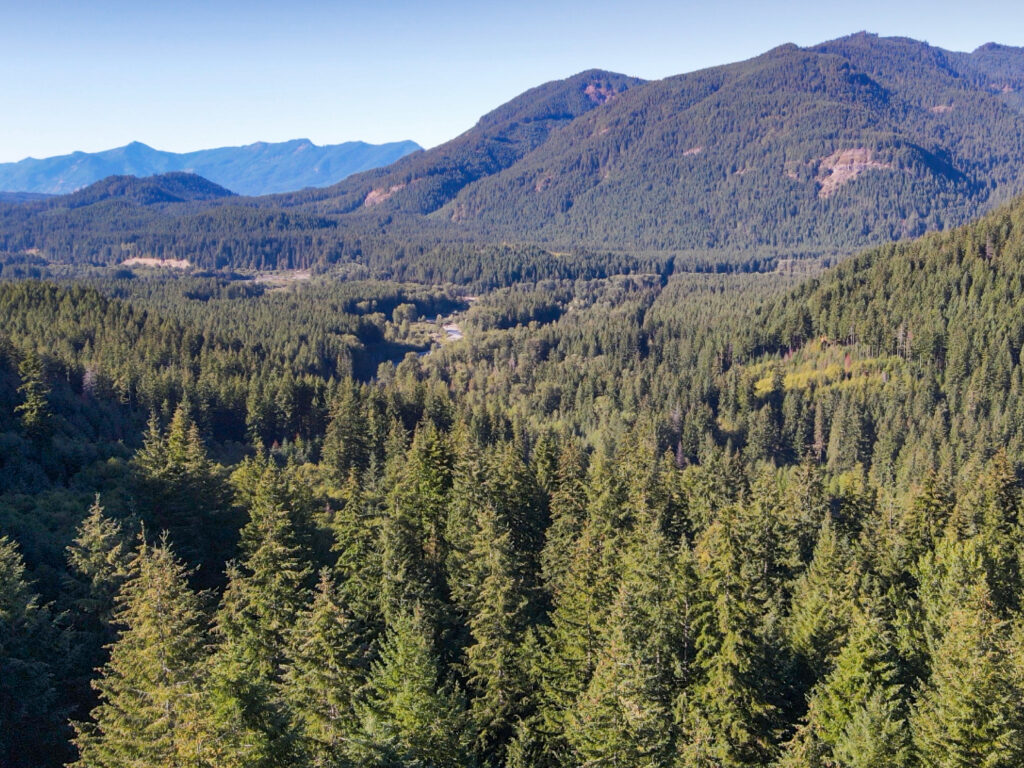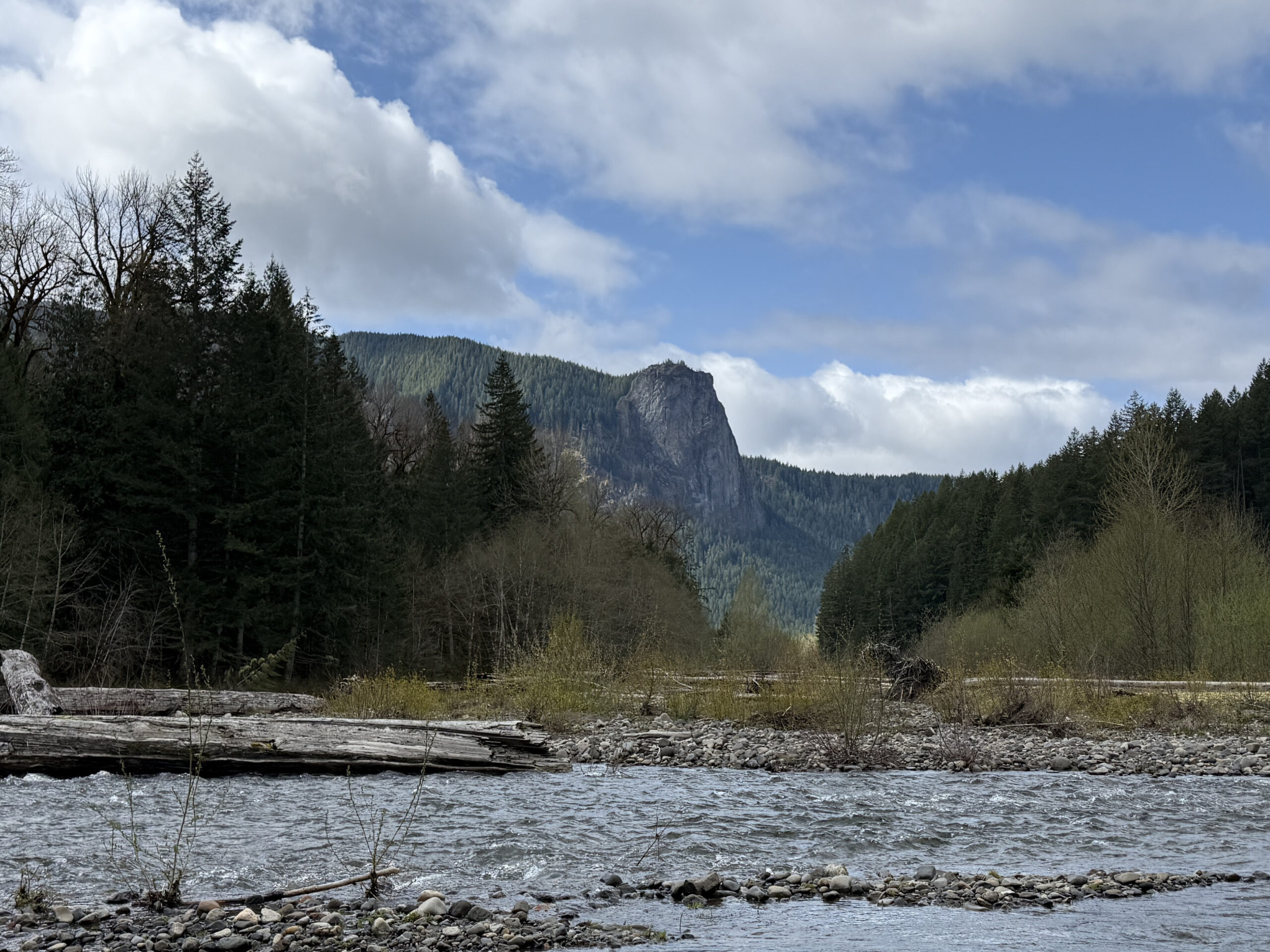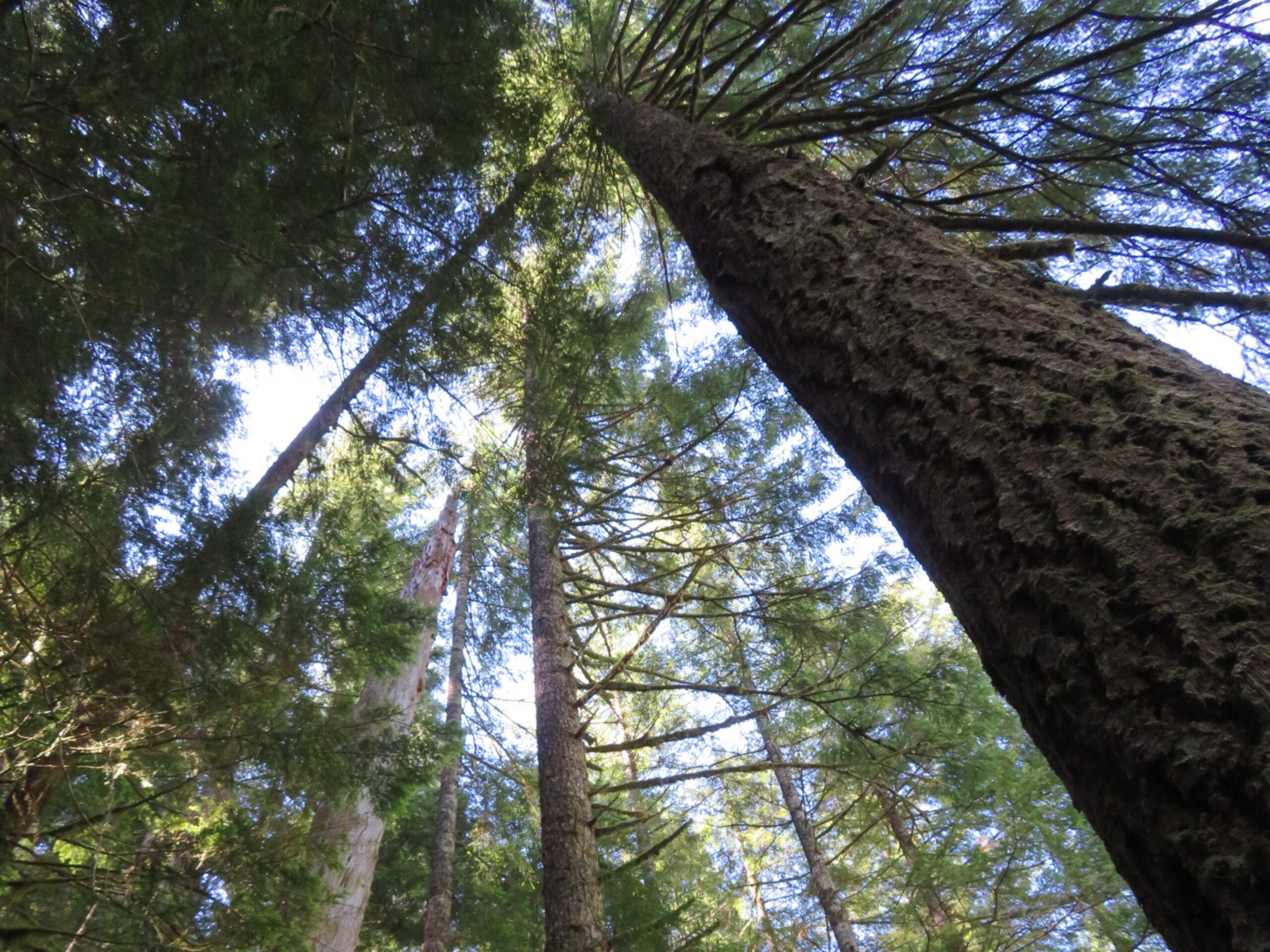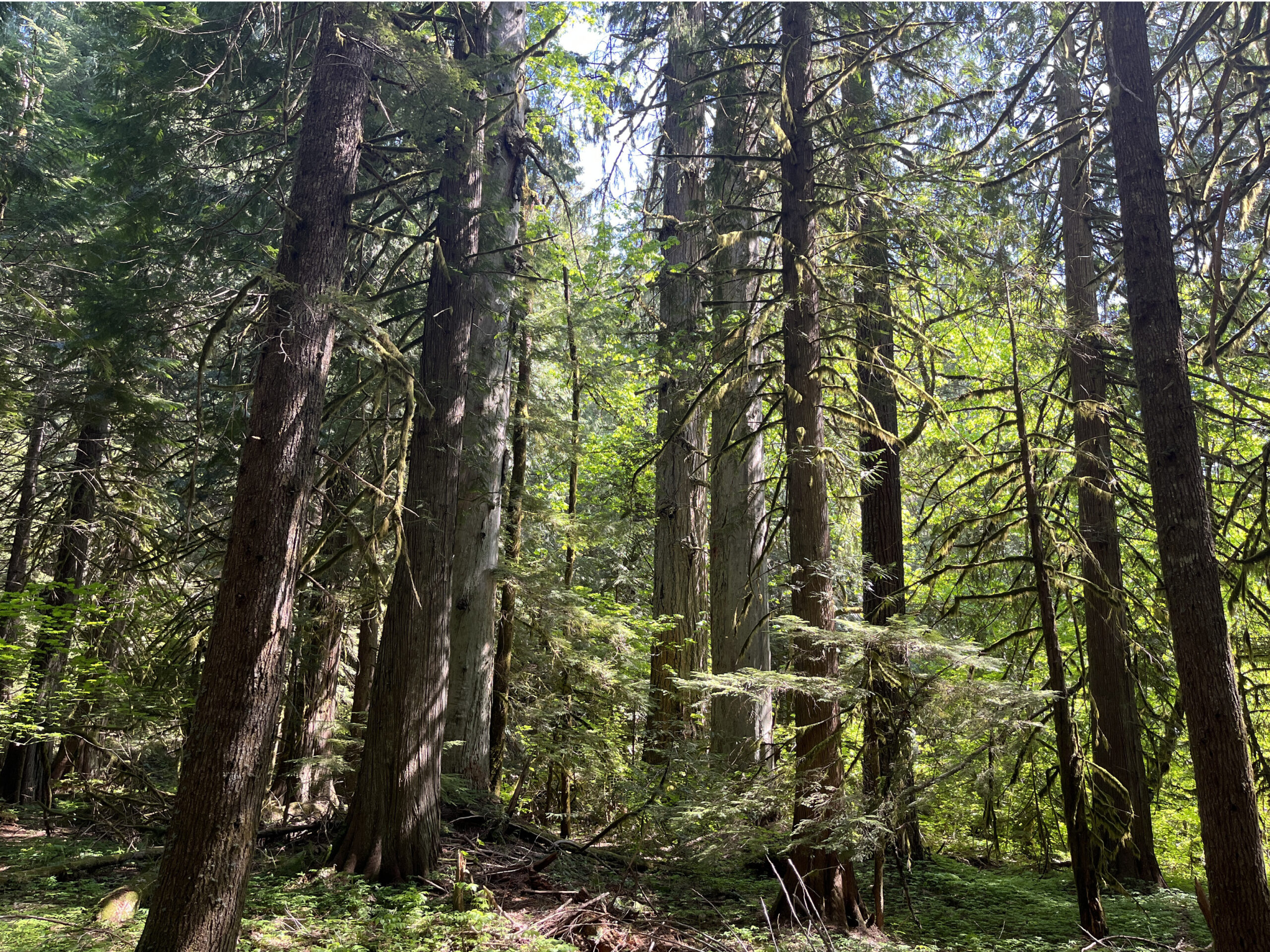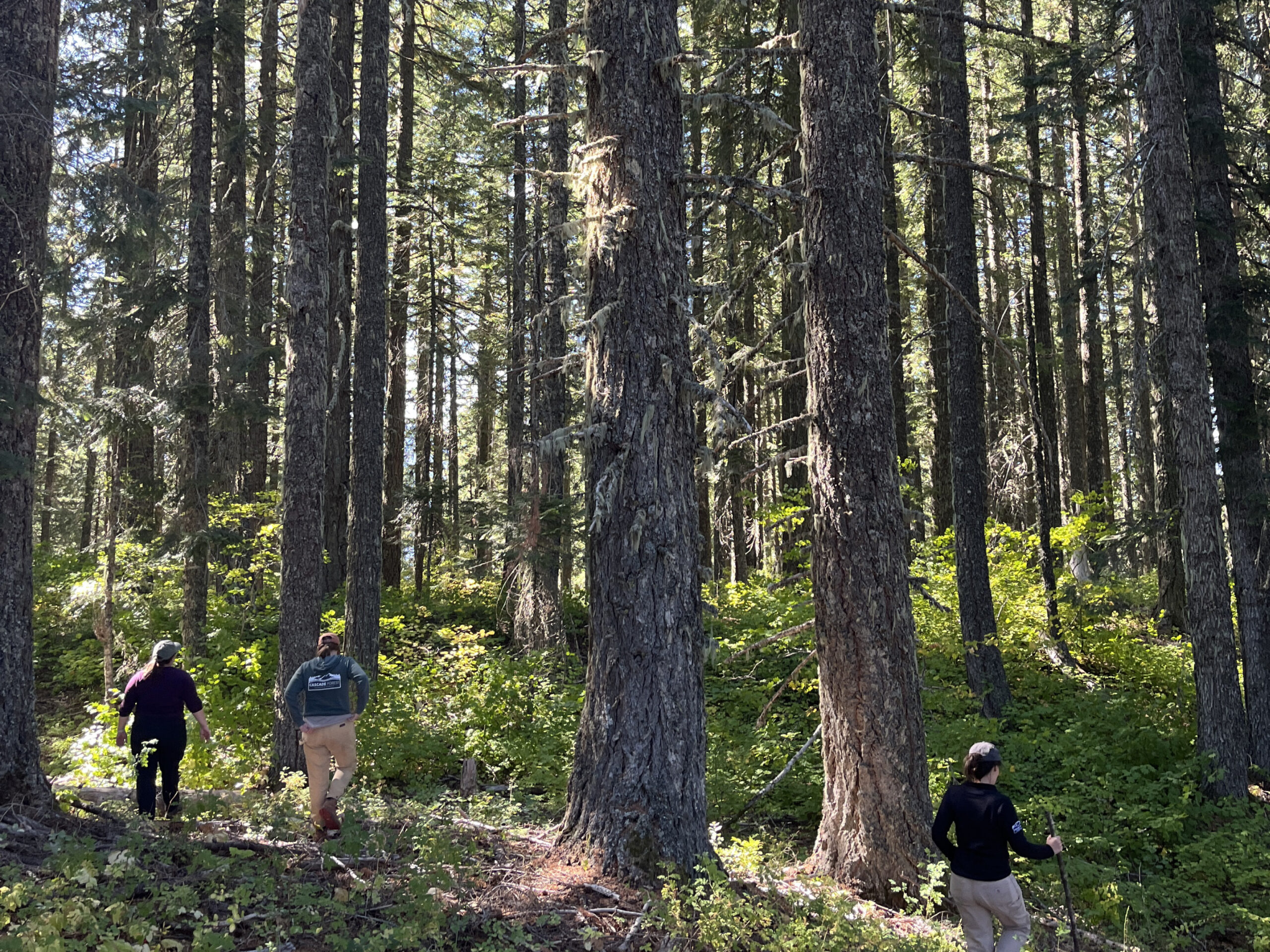Vancouver, WA — on May 28, the US Forest Service released its final decision about the upcoming Yellowjacket timber sale. The decision came over the objections of concerned conservation groups, who say the agency’s plans do not adequately protect critical habitats and mature stands, and that the cumulative impacts of concentrated timber harvests on the area’s watersheds were not sufficiently considered by Forest Service planners.
The Yellowjacket sale will occur on national forest lands in Lewis and Skamania counties east of Mount St. Helens in the Camp Creek-Cispus River and Yellowjacket Creek watersheds. The sale includes a total of 4,651 acres of timber harvest, in addition to various infrastructure and habitat improvement activities.
Molly Whitney, Executive Director of the Vancouver-based Cascade Forest Conservancy, said in an email to the group’s supporters, “[o]ur national forests are on the frontline of climate change. These places contain the vast majority of our region’s remaining old-growth and mature forests; a resource that belongs to all of us. The science is clear. Protecting old-growth and mature forests in the Pacific Northwest is critical to slowing climate change and creating resilience to climate impacts for our local communities, ecosystems, and wildlife. It is imperative that we work to protect these forests and enhance connectivity, but in many ways, the decision released by the Forest Service fails to do that.”
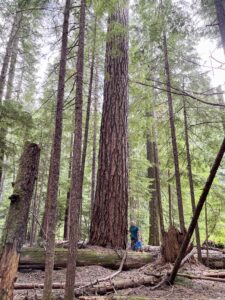
The Yellowjacket timber units are primarily composed of forests dominated by Douglas fir, western hemlock, and silver fir. These forests are located west of the Cascade crest, an area with abundant annual precipitation and a relatively low risk of wildfires.
Whitney says that one of the problems with the Yellowjacket sale is the intensity of the logging, pointing out the agency’s use of a controversial practice known as regeneration harvests, which materials published by the Forest Service say are designed to create more of the young forest habitat preferred by deer and elk by removing up to 90% of an area’s existing canopy cover. Whitney says that regeneration harvests are essentially clear-cuts and that more young forest habitats are already being created by wildfire, drought, root disease, and insect outbreaks.
“The Forest Service has acknowledged that protecting mature and old-growth forests is one of the simplest things it can do to combat climate change,” said Ryan Talbott, Pacific Northwest Conservation Advocate for WildEarth Guardians. “Yet the agency continues to approve sales like Yellowjacket that target the very forests that it knows should be left standing. And keeping mature and old-growth forests intact not only benefits our climate but protects watersheds and wildlife habitat.”
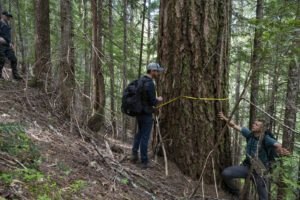
“We used every tool available to us to change the outcome of this decision,” said Ashley Short, Cascade Forest Conservancy’s Policy Manager, and that her organization had been discussing concerns and areas of agreement about the sale with agency officials and the timber industry for years. “We submitted official comments, collected data about stands out in the field, raised issues, and filed objections.” Short says some of her group’s concerns were heard and incorporated into the final plan, but that many of the issues raised, including concerns about the cumulative effects on watersheds of harvest concentrated near waterways, were ignored.
The Yellowjacket timber sale is happening during a time of major transition in how national forest lands are managed. Since taking office, the Biden Administration has been taking steps to rethink how public lands are managed, including executive orders focused on protecting mature and old-growth forests, the formation of a federal committee to formulate recommendations for an update to the Northwest Forest Plan, and the Infrastructure Bill which directs significant funding to climate-related programs.
Short says that while the Administration is trying to take steps to protect old-growth and mature forests, “the changes aren’t making it down to on-the-ground decision-making yet, and that will have consequences for years to come.”


